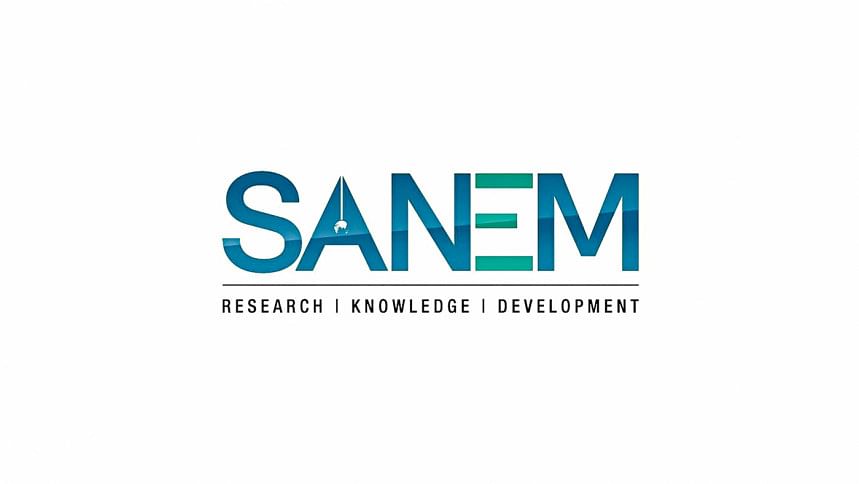Actual food inflation much higher than official data: Sanem study

Officially reported food inflation figures are grossly underestimating the actual food inflation faced by financially marginalised households in Bangladesh, the South Asian Network on Economic Modeling (Sanem) said in a study.
The average food consumption is 61.13 per cent of the total consumption expenditure of the urban marginalised household groups and 65.36 per cent of the total consumption expenditure of the rural household groups under consideration, the sudy said.
These figures are much higher than the food shares used by the Bangladesh Bureau of Statistics in their Consumer Price Index calculation – 45.17 per cent for the urban areas and 58.54 per cent for the rural areas, according to the study.
Sanem today virtually released the study report on "Do the official inflation figures in Bangladesh reflect the actual inflation faced by the marginalised households in Bangladesh?".
"Inflation is the 'cruellest tax' for marginalised people," said Selim Raihan, executive director of Sanem, while presenting a paper on the study.
Poor people cannot cut down on necessities and are hit the hardest by soaring prices of necessities due to the high reliance on the necessary food items, according to study.
The policymakers in the country need to address this concern with utmost priority, he suggested.
In January 2022, according to the BBS, the food inflation rates for the urban and rural areas were 4.85 per cent and 5.94 per cent, respectively.
According to Sanem estimation, the marginalised households in Bangladesh are facing food inflation rates that are more than two times the officially reported food inflation rates.

 For all latest news, follow The Daily Star's Google News channel.
For all latest news, follow The Daily Star's Google News channel. 



Comments